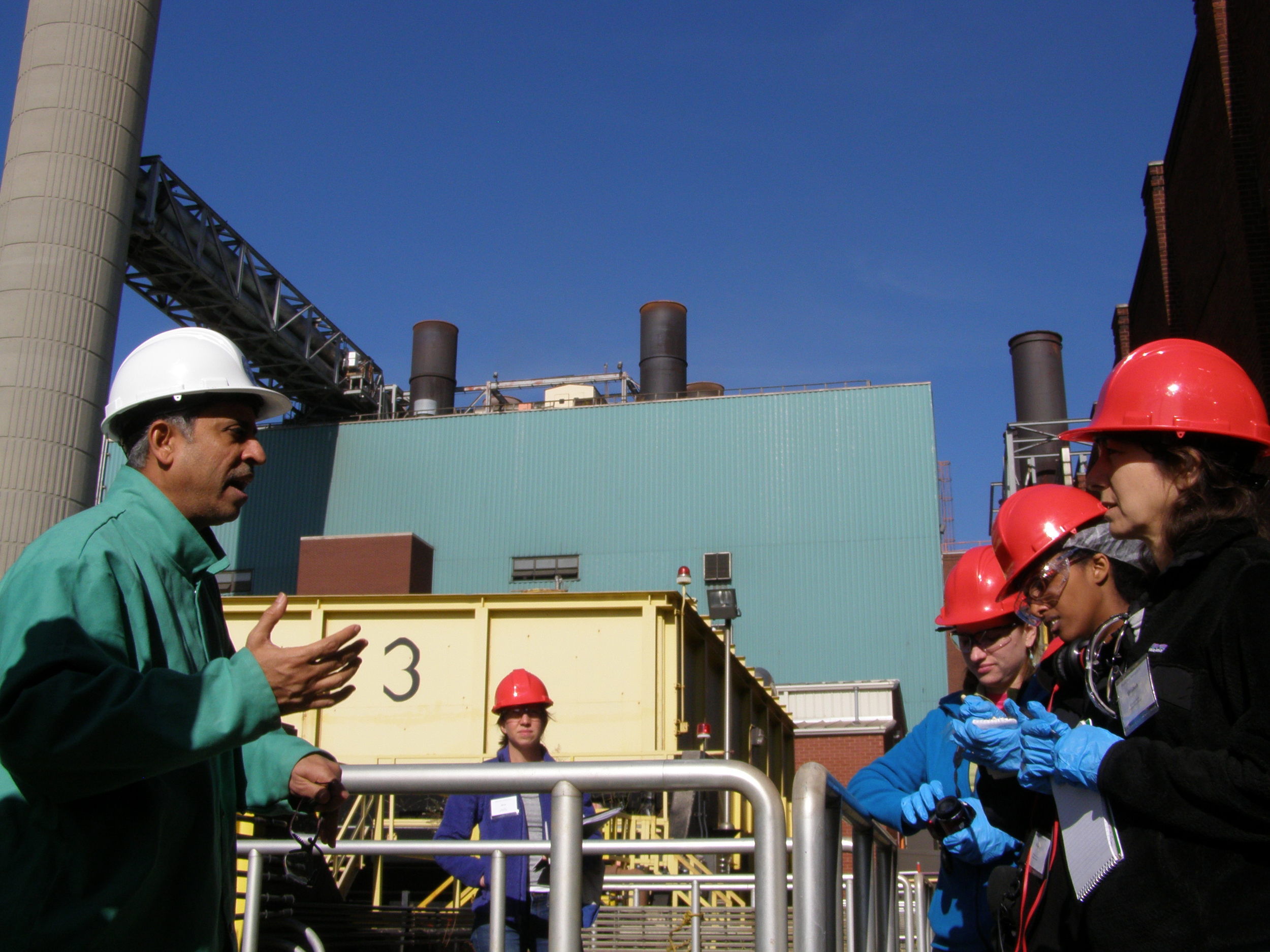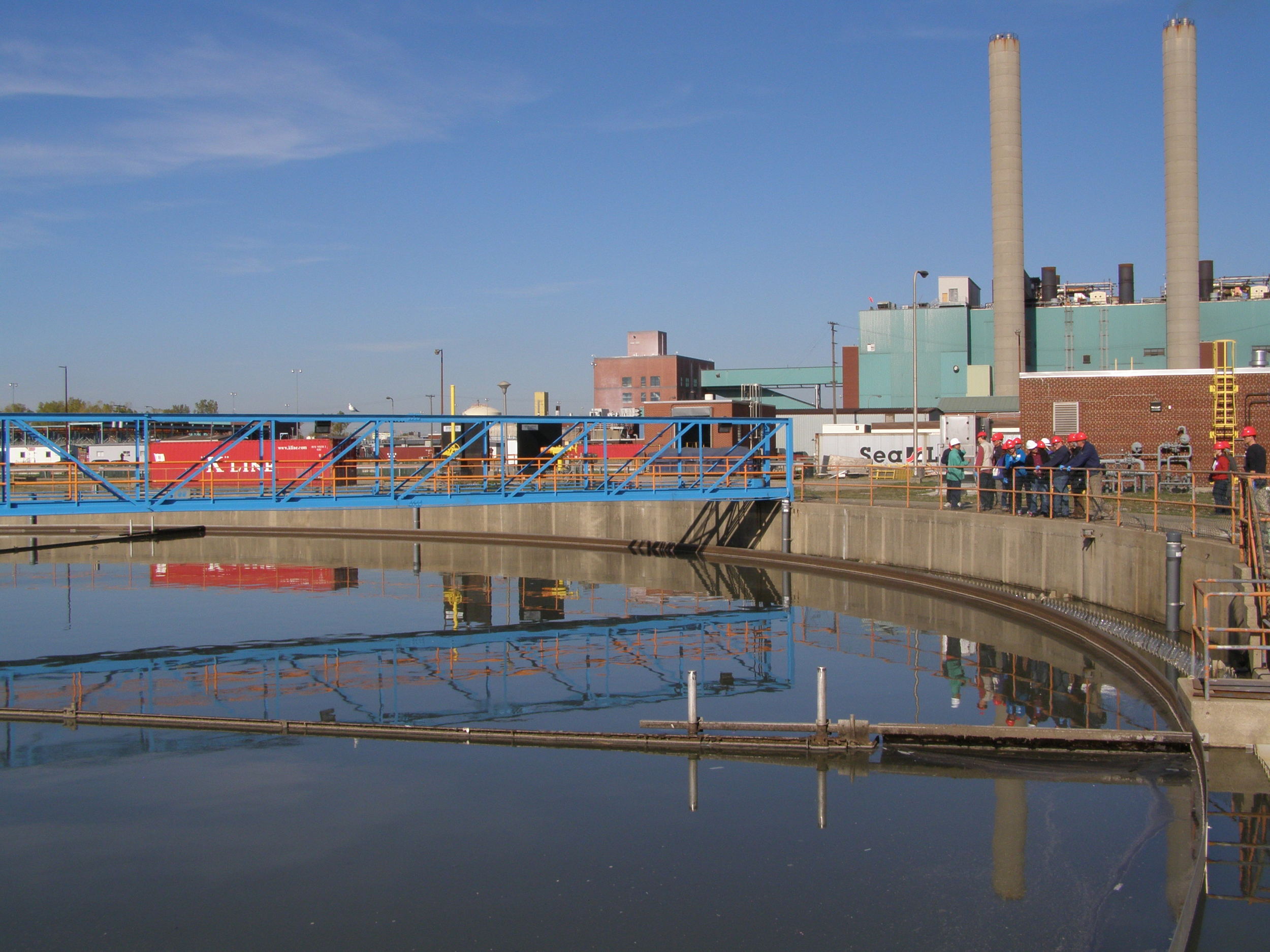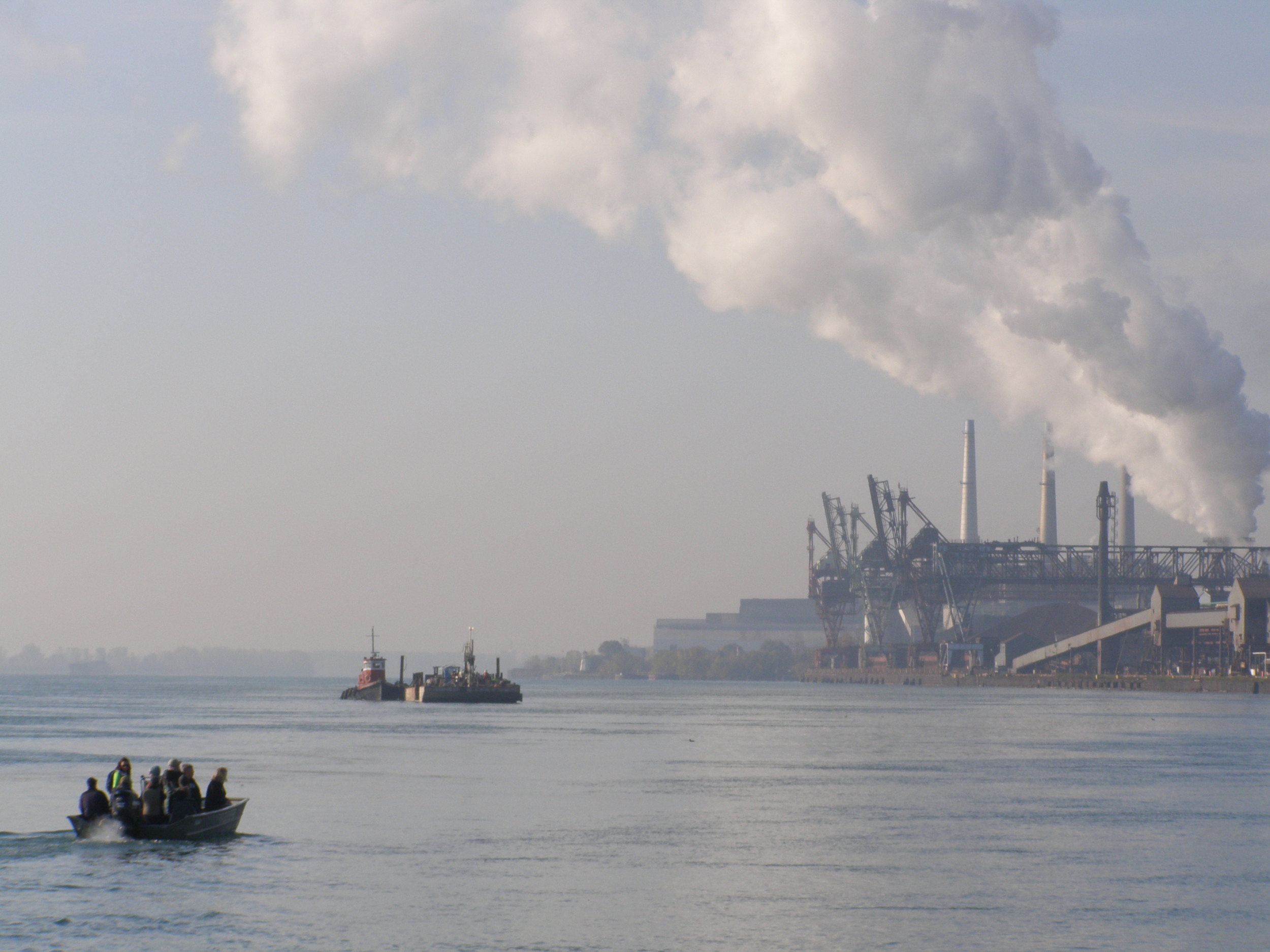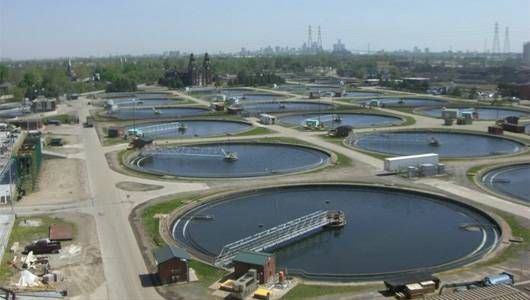Urban Infrastructure: A Workshop on
Water, Energy & Emissions in Detroit
April 4 & 5, 2016
This two-day event focused on water quality and infrastructure, impacts of climate change, energy development and environmental justice in the Great Lakes region. Topics included:
- Uncovering Flint. The Flint water crisis exposed issues of lead contamination, poverty politics and bureaucratic complexity, due in large measure to the determination and skill of journalists who continue to work the story. The group was joined by IJNR alums from Michigan Radio and other outlets who have been keeping Flint in the news, to talk about the complexities of the Flint story, how to keep digging and what the public needs to know.
- What’s in your pipes? The group visited a drinking water demonstration site to learn about the science of producing drinking water, from the chemistry to the physics, and looked at how cities across the region manage to keep clean, safe water flowing to their residents.
- Gray vs. green. Cities such as Detroit have figured out that letting rain water percolate through soil is much more effective than building billion-dollar pipe systems – especially as climate change brings increased rain events that overwhelm systems. Detroit experienced an epic flood in 2014, and now communities are scrambling for a better way.
- Industrial emissions, clean energy and environmental justice. From the Marathon refinery to the U.S. Steel plant to a garbage incinerator close to downtown, Detroit has its share of health-compromising emissions. A non-existent curbside recycling program means even more trash to burn. As the public health costs of the resulting emissions pile up, residents are finding new allies in the fight against air pollution - entrepreneurs who have taken recycling into their own hands, industries that have added clean energy to their portfolio, and, perhaps most surprisingly, a mayor’s office that has taken a recent stand against increased emissions.




